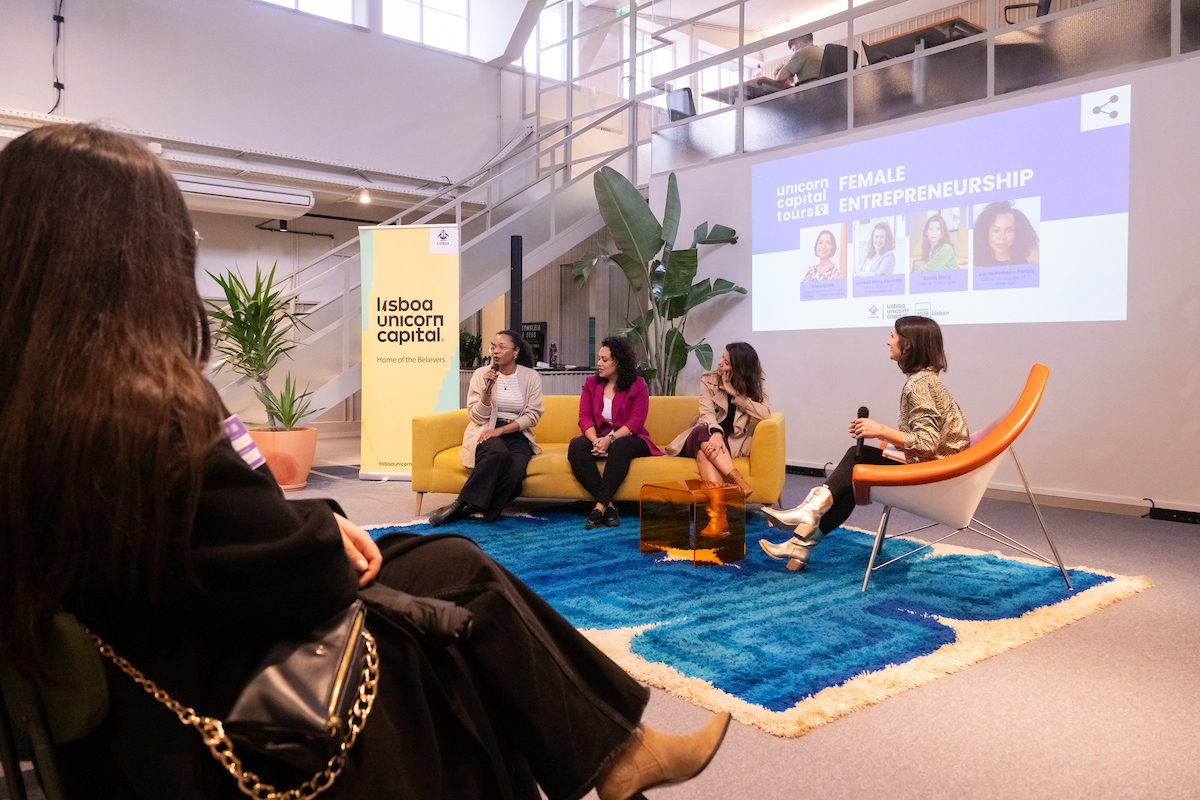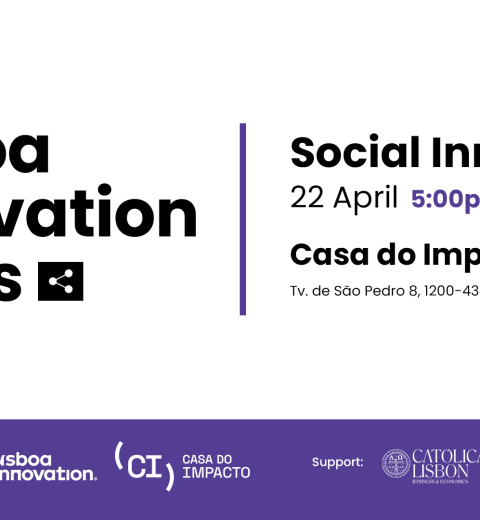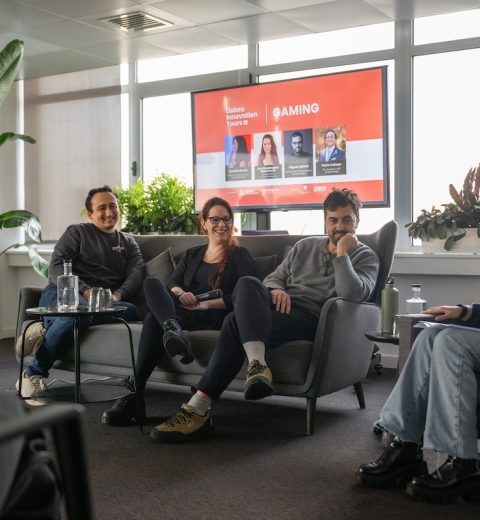The Lisboa Unicorn Capital tour dedicated to female entrepreneurship took place at the end of March in the brand-new space of Impact Hub Lisboa, located in the Penha de França area. Being an organization whose core activity is linked to supporting entrepreneurship with social impact, it was no surprise that the tour, held in partnership between Impact Hub and the Lisboa City Council, was a full house. This time, with a predominantly female audience. In fact, the joint work between the City Council and Impact Hub in the area of female entrepreneurship is not new, as host Francesco Rocca reminded, by mentioning the project, “Women with Impact,” which helped empower 50 Ibero-American female entrepreneurs.
Anabell Mora Acevedo, CEO & Founder of The Equivalence, Cíntia Mano, CEO at COREangels, and Vânia Pinheiro Fortes, CEO & Co-founder of Jupiter App discussed various aspects of female entrepreneurship, moderated by Elena Anton, Diversity and Inclusion Project Manager at Impact Hub Lisboa.
What are the main challenges that a female entrepreneur faces? How does she make her journey? And the difficulties? How does she overcome them?
Cíntia Mano is a business angel very concerned with early-stage startups in which she invests. With the knowledge she has gained over the years in this unique environment, she is able to provide an accurate snapshot of the daily lives of women who have projects in hand and want to continue them towards success. “Above all, what women need is visibility. This is one of the essential strategies so that the rest of the community becomes aware and knows the work that female entrepreneurs are capable of developing. Participating in events and integrating into communities are all useful strategies for showcasing our work and skills,” she emphasized.
Resilience and persistence are qualities invariably associated with female entrepreneurs, she pointed out. “We fall and get back up,” said Cíntia. Indeed, this must be the attitude to adopt, she added. “Despite always having those who point out the difficulties of our path and do not encourage us, despite sometimes male founders looking somewhat suspiciously at female investors, despite facing paternalistic attitudes from some male members of the community, we do not give up, we resist and seek to highlight the value of the collective of women, even when we are numerically disadvantaged in various contexts.”
For Vânia Pinheiro Fortes, the change regarding the current condition of female entrepreneurship in our country must also happen in organizations and institutions, “If we are investors in the UK, we have incentives and support. In Portugal, we are subject to tax charges. Therefore, Portugal still has a lot to learn from these countries. The pandemic managed to bring about some changes, although slight, especially among the younger generations who are now more sensitive to these issues. Thus, as can be seen, it remains to sensitize governments and other institutions.”
In this context of some antagonism, where men and women still position themselves on different sides of the barricades, sorority is naturally invoked: “We must value the complicity and mutual aid created in the female entrepreneurial community, as we all end up facing problems, even if sometimes they are of a different nature,” highlighted Anabell Acevedo.
Female entrepreneurs claim for themselves the same treatment that male entrepreneurs have in this “world.” “We want them to believe in our capabilities and potentialities and that no prejudices and clichés persist. We are more than just lifestyle businesswomen. We have many ideas and are capable of developing them and leading our businesses not because we are too ‘bossy’ or authoritarian; it’s because we are also good at doing it,” emphasized Cíntia.
Given the clear imbalance in terms of parity that still exists in the entrepreneurial ecosystem, the issue of the existence of quotas is still raised, the participants in the debate maintained. “There are areas where startups are still very male-dominated, like fintech, so it is necessary to encourage and create conditions for women to have equal opportunities,” she added.
In a closing piece of advice, Cíntia Mano left these words: “Don’t spend your energy trying to adapt. If the only support they offer for your projects is because of your ‘pretty eyes,’ get out of there! You don’t need that.”
In a context still markedly unbalanced, the promotion of equal opportunities remains current and deserves the attention and support of the entire entrepreneurial ecosystem. Diversity is very relevant, not only for a matter of parity but also and above all because it itself constitutes an unavoidable factor for the economic progress of a community. Female entrepreneurs should be recognized for their talent and not stereotypes. And it is in such a world that everyone wants to live.






